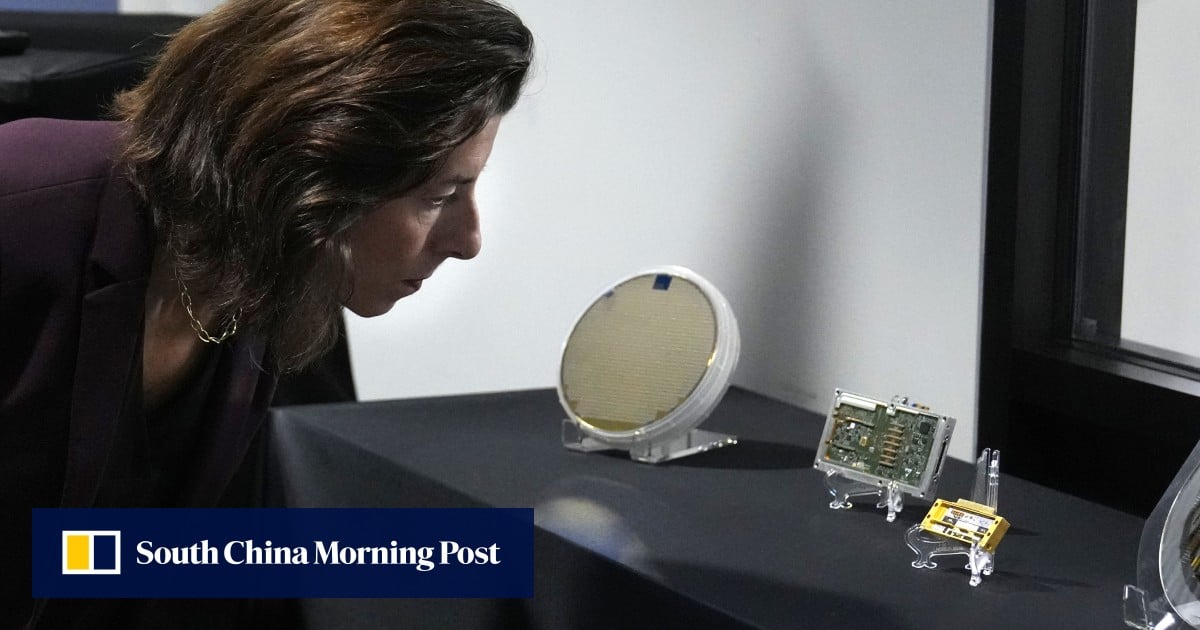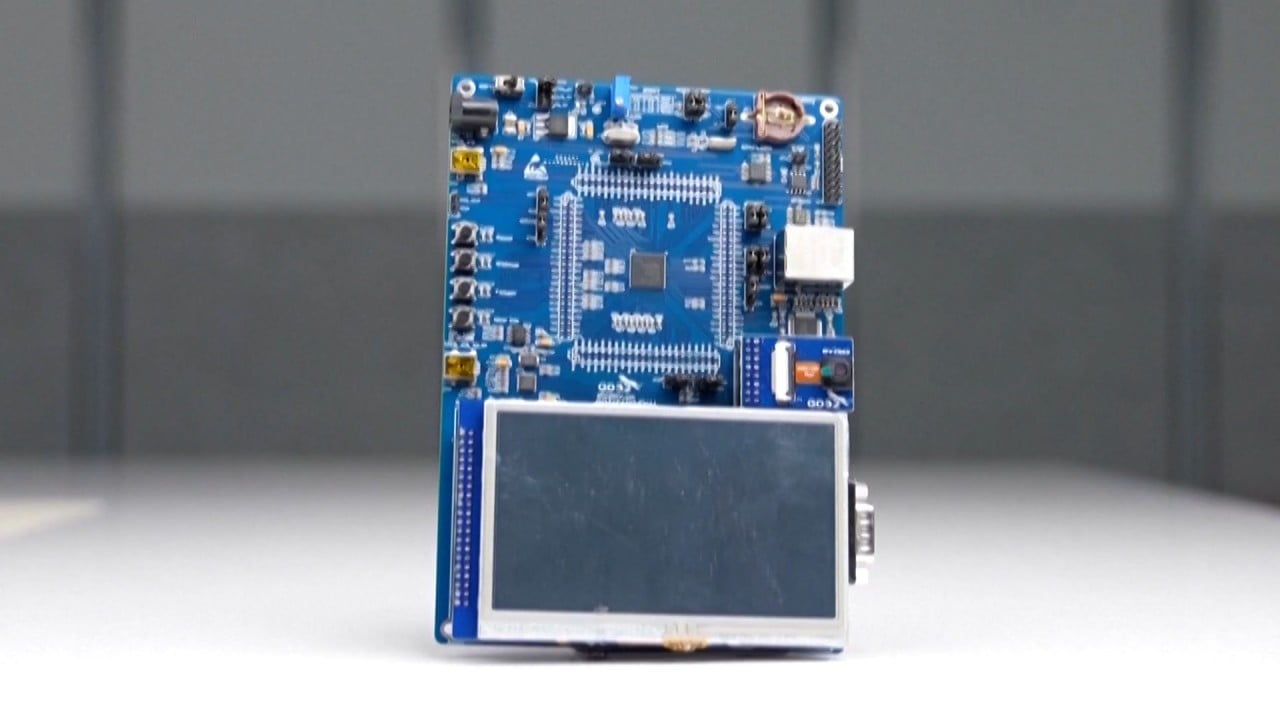The money will help a BAE facility in Nashua, New Hampshire, quadruple production of chips that are used in F-15 and F-35 fighter jets, the US Commerce Department said. Secretary Gina Raimondo, who travelled to New Hampshire on Monday to announce the grant, said that it seeks to “set the tone” for the rest of the chips effort.
The US has become “dangerously reliant” on a handful of Asian countries for the most sophisticated semiconductors, Raimondo said at an event in Nashua. The BAE announcement marks a new phase of the US chips effort, she said: “We started to put the money out the door.”
Raimondo described the BAE grant as “relatively small”, adding that she expects 10 to 12 additional announcements within the next year. Those will include money for the most advanced chip-making facilities in the US, she said, and may range from tens of millions of dollars to multibillion-dollar awards.
The Chips Act set aside US$39 billion in direct grants and about US$75 billion in loans and loan guarantees to bring chip-making back to the US after decades of production in Asia.
Several of those companies have said that their facilities – which cost tens of billions of dollars to build – are contingent on US government support.
More than 550 firms have expressed interest in the US programme, with almost 150 having submitted pre-applications.
A senior US official, who asked not to be identified discussing private deliberations, said the BAE grant will be tied to meeting production and pricing expectations over the next several years. It will allow BAE to upgrade its equipment and therefore halve the price of its chips, the official said, but will not involve a facility expansion or additional production lines.
The Commerce Department’s goal, Raimondo has said, is to structure deals that award the minimum amount of government funding necessary to make projects viable on US soil – where labour and other production costs are much higher than in Asia.
The US is also negotiating with companies that are weighing subsidy offers from governments around the world, often with fewer strings attached and money already out the door.
BAE’s Nashua facility is part of a Defence Department programme that identifies secure foundries for the military’s semiconductor supply chain. While the Pentagon also sources chips from other international suppliers, the official said, BAE is the key facility in that network.


